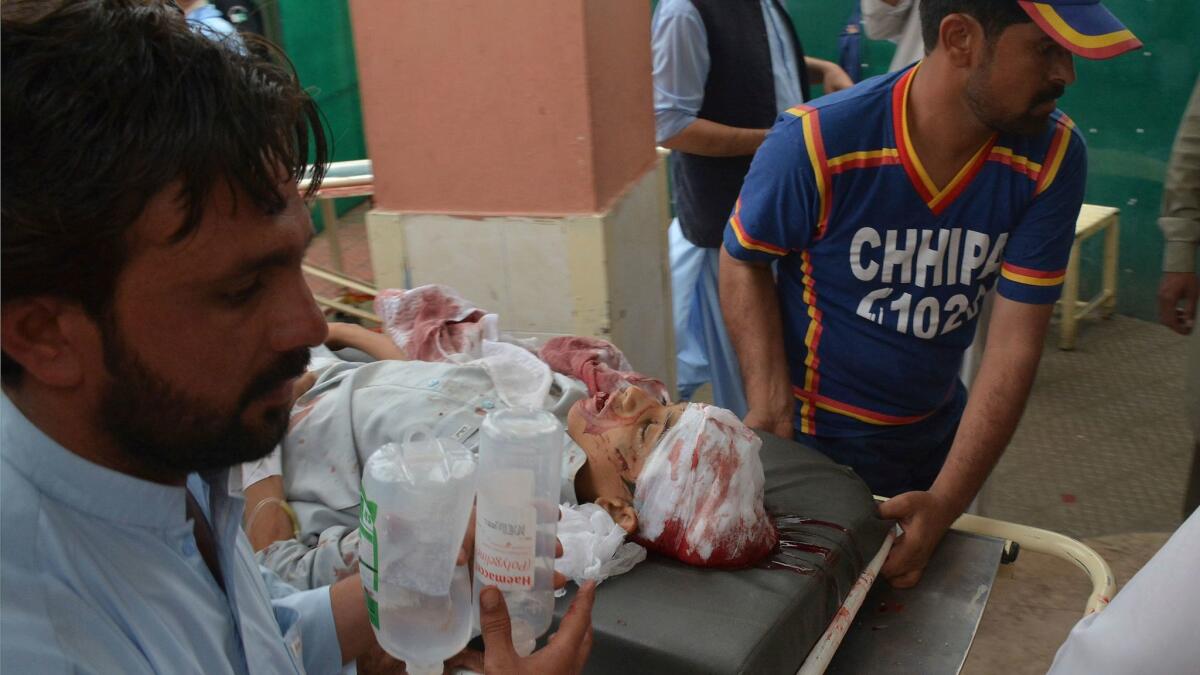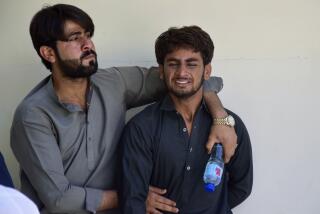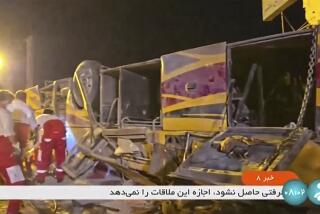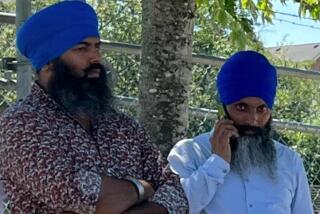At least 25 people killed in Pakistan blast targeting Islamist lawmaker

A roadside bomb struck a convoy carrying the deputy leader of Pakistan’s Senate on Friday, killing 25 people and wounding more than 30 others, hospital sources said.
Maulana Abdul Ghafoor Haideri, leader of an Islamist political party, was wounded and his driver and private secretary were killed instantly in the attack in restive Baluchistan province .
“Allah has saved my life,” Haideri told the Samaa television channel.
The Islamic State group claimed responsibility for the attack on its Aamaq news agency, according to the Associated Press.
The blast occurred in the Mastung district, about 30 miles southeast of the provincial capital, Quetta, in southwestern Pakistan. Haideri’s vehicle, designed to be bullet-resistant, was badly damaged along with several other vehicles in the convoy.
Sources said Haideri, general-secretary of the Jamiat Ulema-i-Islam party, had attended a graduation ceremony at which he conferred degrees on graduates of a seminary affiliated with his party.
Saleem Shahid, a senior journalist in Quetta, said the blast occurred when Haideri’s motorcade was heading from the seminary to another location.
Dr. Sher Ahmad, head of Mastung Hospital, said 25 bodies had been brought to the hospital after the attack. More than 30 people were wounded, many seriously, he said.
Haideri was being treated at Combined Military Hospital, a Pakistani army facility in Quetta.
“It was all very sudden,” Haideri said. “Broken pieces of the windshield hit me. I am injured, but safe.”
Haideri’s party, led by Maulana Fazlur Rehman, has significant support in Baluchistan. The party was a staunch ally of the Taliban-led Islamist government in Afghanistan that was toppled by the 2001 U.S.-led military invasion.
Rehman has survived at least three assassination attempts, including in Quetta in 2014. His party is part of Pakistan’s governing coalition, in an alliance with Prime Minister Nawaz Sharif.
Baluchistan, along the border with Afghanistan, has long been beset by militant violence, including by ethnic Baluch groups agitating for self-government. Earlier this month, Pakistan closed its Chaman border crossing in Baluchistan after clashes between security forces from the two countries.
The Pakistani army said that nine civilians were killed and more than 40 wounded when Afghan forces fired on government teams carrying out a population census in border villages. In response, the Pakistani army said it killed dozens of Afghan soldiers, a claim that Kabul has denied.
Ali is a special correspondent. Times staff writer Shashank Bengali contributed to this report from Mumbai, India.
ALSO
Why a Washington visit by Turkey’s president might be awkward
India is building a biometric database for 1.3 billion people — and enrollment is mandatory
Aerospace peppers and astronaut robots: A town’s transformation reveals China’s ambitions in space
More to Read
Sign up for Essential California
The most important California stories and recommendations in your inbox every morning.
You may occasionally receive promotional content from the Los Angeles Times.










